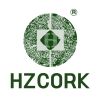-
About
- About Listly
- Community & Support
- Howto
- Chrome Extension
- Bookmarklet
- WordPress Plugin
- Listly Premium
- Privacy
- Terms
- DMCA Copyright
- © 2010-2025 Boomy Labs


 HZ CORK
HZ CORK
Listly by HZ CORK
the global vegan leather market is expected to grow at a CAGR of 48.1% during the forecast period of 2020-2026. By 2025, the vegan leather market will be worth $89.6 billion.
Here, we have compiled a list of all 7 types of vegan leather that are widely used or are emerging in the industry.
In our list, you will find the biggest, best and most comprehensive vegan leather alternatives on the web.

Pinatex is one of the first natural vegan leather brands to emerge as an alternative to PU and PVC, which have been widely used in animal-free products over the past few years but are harmful to the environment.
Piñatex, developed by Ananas Anam, is a natural and sustainable textile made from pineapple leaves. pinatex has leather-like qualities and at the same time, it is much more environmentally friendly than PU and PVC leather.

The Dutch startup Fruitleather Rotterdam has created Mango leather, a durable vegan leather made from leftover mangoes from fruit markets.
The company uses leftover mangoes from fruit markets, mashing them, boiling them to eliminate bacteria, and then, after a series of steps, the resulting puree is applied to the surface of the bag and dried to create a “durable, corrosion-resistant leather-like material”.

Indian startup Malai has developed a coconut leather that uses bacterial cellulose extracted from coconut water, which is then processed, refined and mixed with other natural fibers (such as banana, hemp or teak leaves) to create a durable, leather-like material.
Coconut leather does not use any toxic substances or any plastic coating at any stage of the production cycle, and the end product is not only vegan-friendly, but also much less resource-intensive than real leather.

Muskin, invented by Zero Grado Espace in Monte Lupo, Florentino, solves these problems perfectly: it is a vegetable leather, made from a special kind of mushroom, which is treated without using any polluting substances.
MuSkin is one of the best-known vegan leather materials available, and it resembles cowhide in appearance but is made from the top of the mulberry mushroom – which is naturally tanned to have a leather-like appearance.

Wine leather, also known as grape leather, is produced by Vegea, an Italian technology company. The basic idea behind the project was to create a 100% recyclable vegan leather alternative.
Vegea’s Wine leather not only has the feel of traditional leather and has similar properties, but it also has other advantages.

This natural and organically tanned cactus-based organic material is called Desserto leather, and it has all the characteristics and functions of animal leather at a fraction of the cost.
They are non-toxic and do not contain toxic chemicals, phthalates, or PVC, according to Fashion United.
“This fabric is biodegradable because it is extremely durable.”

HZCORK is already one of the experts in the cork industry with more than 10 years of experience in cork production. Natural cork fabric, also known as cork leather, is made from shavings taken directly from the cork oak tree.
Cork leather is environmentally and ecologically friendly. The material is a great alternative to animal leather or vinyl because it is sustainable, washable, stain-resistant, durable, antibacterial and hypoallergenic.
